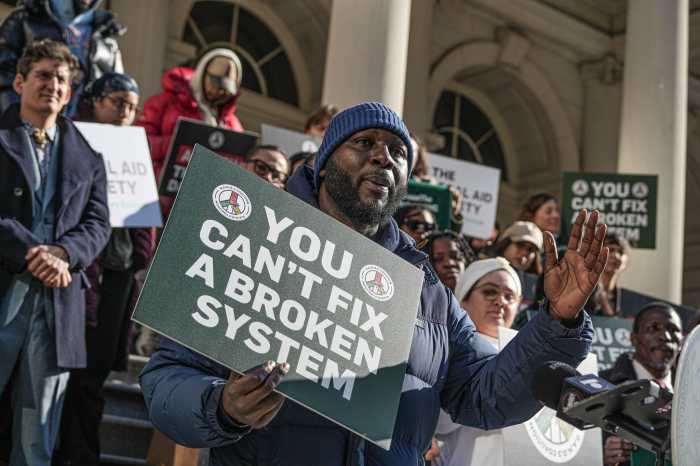On February 8, 2006, President Bush signed the Deficit Reduction Act of 2005 (‘DRA’). The DRA contains provisions that severely limit access to Medicaid benefits by seniors and the disabled.
Prior to enactment of the DRA, when a Medicaid nursing home care application was submitted, the Medicaid Agency examined all of the applicant’s transactions going back three years (except in the case of transfers to certain trusts, which were five years). Hence, if assets were transferred (gifted) 2 years ago, the transfers would be transparent to the Agency and a penalty period would be imposed. Under the prior law, if assets were transferred 37 months ago, irrespective of the amount, the transfers would not be transparent to Medicaid and therefore would have no effect on Medicaid eligibility.
The new legislation extends the look back period from 3 to 5 years. All transfers made after the enactment date of the DRA will be transparent to Medicaid for the 5 year period prior to the application for Medicaid nursing home benefits, and will therefore be subject to a period of ineligibility. It is important to note that transfers made prior to the enactment date of DRA are only subject to a 3 year look back.
However, one of the most onerous aspects of the DRA is the calculation of the commencement date of the period of ineligibility. Prior to the enactment of the DRA, when an individual transferred assets for less than fair market value, the period of ineligibility began on the first day of the first month after the month in which the gift was made.
Therefore, if a New York City resident transferred $91,320 on January 1, 2006 (prior to the date the DRA was enacted), he would not be eligible for Medicaid nursing home benefits for 10 months commencing on February 1, 2006. The 10-month waiting period is calculated by taking the amount of the gift, i.e., $91,320, and dividing that by the average monthly cost of a nursing home which, for New York City residents, is presumed to be $9,132 per month in 2006. That individual could apply for Medicaid nursing home benefits beginning December 1, 2006 as long as his other assets do not exceed the allowable resource level, currently $4,150 (plus certain exempt assets).
For all transfers made after the DRA was enacted, the period of ineligibility will start to run when an individual is in a nursing home, his liquid, non-IRA assets are below Medicaid’s resource level of $4,150 and he applied for Medicaid nursing home benefits. Although difficult to comprehend, the new law provides that the waiting period will only begin to run when the applicant is already in a nursing home and doesn’t have the money to pay for his care any longer. It is for this reason that some have dubbed the Deficit Reduction Act of 2005, the “Nursing Home Bankruptcy Act of 2005.”
For example, assume that an individual transferred $91,320 to a grandchild on January 1, 2007, after the effective date of the DRA. If he went into a nursing home on January 1, 2011, and had assets below Medicaid’s allowable resource level and applied for benefits at that time, he would be denied eligibility for 10 months after the application. But, at that time, he won’t have the funds to pay for his care. If his grandchild used the gifted assets for her college education, they could no longer be used for the individual’s care in the nursing home. In this instance, an elder law attorney could argue for a hardship waiver, which is provided for under the DRA. Further, some planning options may be available to protect some of the gifted assets. It is important to remember that these draconian provisions of the DRA only apply to transfers made after its enactment date.
Although there are techniques that can preserve some assets even at the last minute, protecting assets from the high cost of long-term care expenses will be much more difficult under the DRA. Now more than ever, seniors and the disabled are urged to plan in advance for future long-term health care needs. Individuals 60 years and older should consult with an elder law attorney and have a plan in place to pay for these expenses.
Ronald A. Fatoullah, Esq. is the principal of Ronald Fatoullah & Associates, a law firm that concentrates in elder law, estate planning, Medicaid planning, guardianships, estate administration, trusts and wills. The firm has offices in Forest Hills, Great Neck, and Brooklyn, NY. Mr. Fatoullah has been named a “fellow” of the National Academy of Elder Law Attorneys and is a former member of its Board of Directors. He also serves on the Executive Committee of the Elder Law Section of the New York State Bar Association. Mr. Fatoullah has been Certified as an Elder Law Attorney by the National Elder Law Foundation. Mr. Fatoullah is a co-founder of Senior Umbrella Network of Queens. This article was written with the assistance of Stacey Meshnick, Esq., who supervises the Medicaid Department at the firm. The firm can be reached by calling (718) 261-1700, (516) 466-4422 or toll free at 1-877-ELDER-LAW or 1-877-ESTATES.































